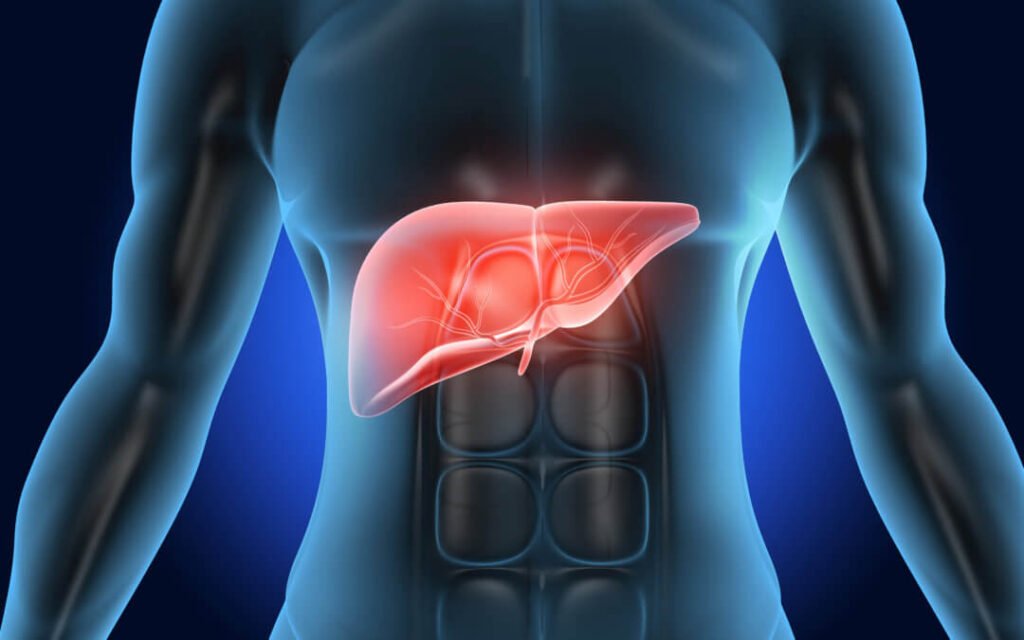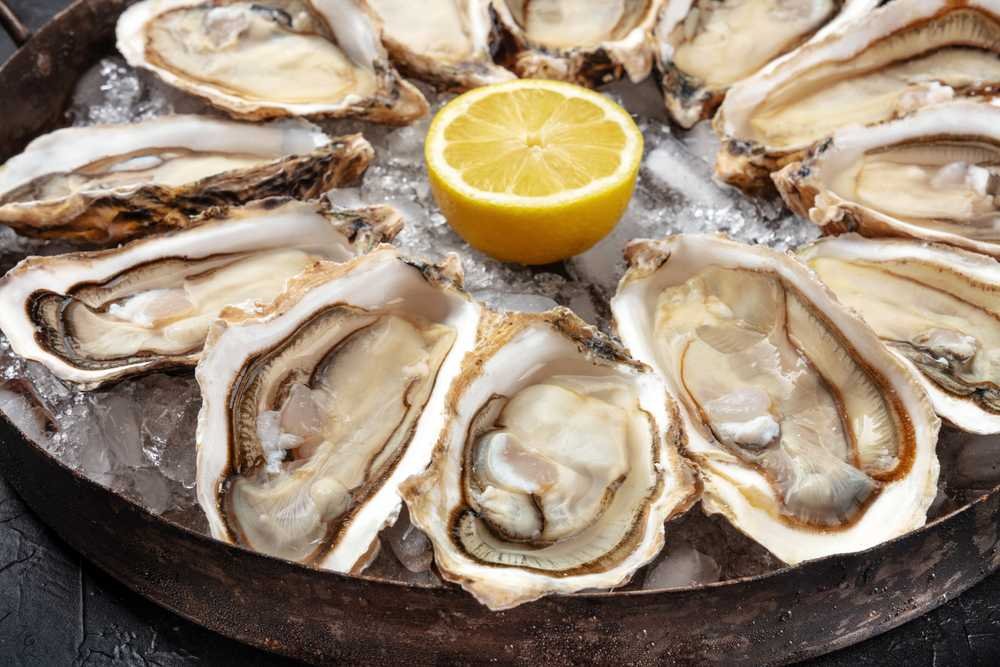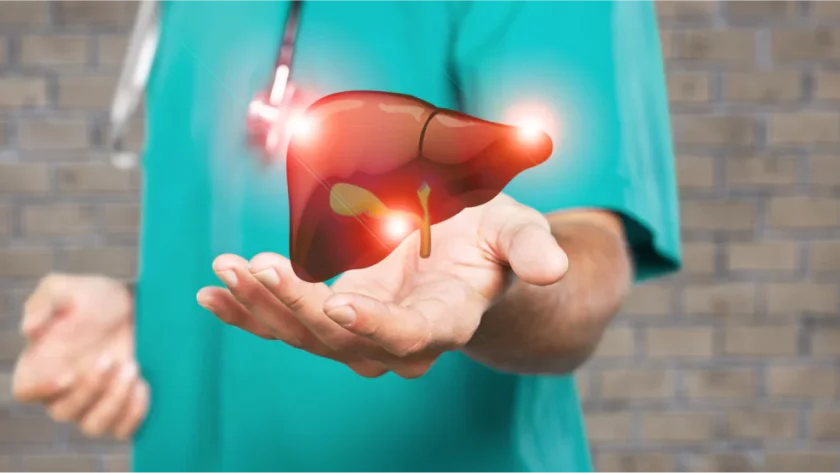Are you struggling with liver disease and searching for solutions? Zinc might be the answer you’ve been looking for! In this article, we’ll unlock the secret connection between zinc deficiency and liver disease, and how it can potentially help you on your healing journey. We’ll explain in a simple and easy-to-understand way how zinc deficiency can impact your liver, and how zinc supplementation might improve your well-being. Join us as we uncover the solution you’ve been seeking and learn how you can utilize zinc to support your liver health and enjoy a better quality of life.
Table of Contents
Brief The Article:
What is the relationship between zinc and the liver?
Zinc is one of the most important minerals for liver health. Symptoms of zinc deficiency are almost identical to symptoms of liver problems, suggesting a strong connection between zinc levels and liver function.
What are the symptoms of zinc deficiency and liver problems?
Common symptoms include:
- Loss of appetite
- Loss of body hair
- Altered taste and smell
- Testicular atrophy
- Impaired immune system
- Decreased detoxification ability
- Ascites (protruded stomach)
- Increased risk of liver cancer
- Liver inflammation
- Skin problems
Does zinc deficiency cause liver problems or vice versa?
It’s unclear whether zinc deficiency causes liver problems or if liver damage leads to zinc deficiency. Both conditions can contribute to hormonal imbalances and similar symptoms, making it difficult to determine the primary cause.
What can be done to address zinc deficiency and liver health?
Increasing zinc intake through diet or supplements can help reduce and prevent liver-related symptoms. It’s important to consume zinc-rich foods and consider supplementation if needed.
What are the best food sources of zinc?
The highest zinc food sources include:
- Shellfish
- Beef liver
- Beef
- Lamb
- Other meats
- Seeds
- Nuts
- Dairy products
- Eggs
Are there any foods to avoid when trying to increase zinc intake?
It’s best to avoid grains (especially whole wheat) and sugar. Whole wheat contains phytates that prevent zinc absorption, and sugar consumption depletes zinc in the body.
What are some subtle signs of zinc deficiency?
Subtle signs of zinc deficiency can include:
- Fatigue
- Weakness
- Lethargy
These symptoms may be easily overlooked or attributed to other causes.
Why is zinc important for those with liver problems?
Zinc is considered one of the most important minerals for supporting liver health. Ensuring adequate zinc intake is crucial for anyone with liver problems or potential liver issues to maintain proper liver function and prevent further complications.
Key Points:
- Zinc is crucial for liver health
- Zinc deficiency symptoms mirror liver problems
- Adequate zinc intake can reduce and prevent liver-related symptoms
- Many people have undiagnosed zinc deficiencies
So let’s dive into the details…
Zinc and the liver

So in this topic, I want to talk about the relationship between zinc and your liver. Zinc is probably one of the most important minerals for the liver and here’s why:
when you look at the symptoms from a zinc deficiency, they’re identical to the symptoms of a liver problem. And I’m talking about a liver that’s dysfunctional like if it’s inflamed or there’s scar tissue as in cirrhosis.
Key Points:
- Zinc is crucial for liver health
- Symptoms of zinc deficiency mirror liver problems
- Liver dysfunction can manifest as inflammation or cirrhosis
Zinc deficiency symptoms

When people have a liver problem they usually get loss of appetite, the loss of body hair, altered taste and smell. Now it could be because you’re deficient in zinc.
Testicular atrophy, your immune system is impaired, you have decreased ability to detoxify drugs from your body. You can get ascites, you have this protruded stomach because the liver is leaking fluid into a sac around the stomach.
A deficiency of zinc can increase your risk for liver cancer, inflammation in the liver, and a lot of skin problems.
Symptoms of Zinc Deficiency and Liver Problems:
- Loss of appetite
- Loss of body hair
- Altered taste and smell
- Testicular atrophy
- Impaired immune system
- Decreased detoxification ability
- Ascites (protruded stomach)
- Increased risk of liver cancer
- Liver inflammation
- Skin problems
The question is, is it the chicken or the egg? Does a zinc deficiency cause the liver to create these symptoms, or is it the liver damage that’s creating these symptoms as well as creating a zinc deficiency?
Well, that’s very hard to tell because we do know in an isolated situation the zinc deficiency for example will create low testosterone and testicular atrophy.
But if the liver is damaged, you’re not going to be able to get rid of estrogen and you’re going to get high levels of estrogen which is indirectly going to cause a low testosterone situation.
The Chicken or the Egg Dilemma:
- Zinc deficiency may cause liver symptoms
- Liver damage may cause zinc deficiency
- Both conditions can lead to hormonal imbalances
What we do know is all these symptoms right here could be a zinc deficiency or it could be a problem with your liver. And by getting more zinc in your diet or taking it in the supplement form, you can reduce these symptoms right here and even sometimes prevent them as well as protect the liver.
What you could do

If you’re not familiar with what foods are high in zinc, shellfish is at the top of the list, beef liver, beef in general, lamb, other meats, seeds, nuts, dairy products, eggs.
There is zinc in whole wheat but the problem is the bran in wheat products prevents the absorption of zinc because it has something called phytates.
So of course to get the zinc you want to avoid all grains as well as sugar because when you consume sugar you deplete zinc.
Foods rich in zinc
Highest Zinc Food Sources:
- Shellfish
- Beef liver
- Beef
- Lamb
- Other meats
- Seeds
- Nuts
- Dairy products
- Eggs
Unfortunately, a lot of people have a zinc deficiency and they don’t know it. We don’t retain zinc very well.

If you’re not consuming zinc from the diet, chances are you’re going to be somewhat deficient and it’s going to start on a gradient and you may not even notice a full-blown deficiency until later because some of the subclinical or subtle signs of a zinc deficiency
could be like fatigue and weakness and lethargy that you may associate with something else.
Subtle Signs of Zinc Deficiency:
- Fatigue
- Weakness
- Lethargy
If you have any liver problem or any attention that you potentially could have a liver problem, make sure you have enough zinc in your diet because that’s very, very important if not the most important mineral to support a healthy liver.
Summary
Zinc is probably one of the most important minerals for the liver. Symptoms of a zinc deficiency are identical to the symptoms of a liver problem.
A zinc deficiency, like a liver problem, could increase the risk of:
• Loss of appetite
• Loss of body hair
• Altered taste
• Testicular atrophy
• Immune system impairment
• Decreased drug detox capacity
• Ascites
• Liver cancer
• Inflammation in the liver
• Skin problems
Does a zinc deficiency cause the liver to create these symptoms, or is it the liver damage that’s creating these symptoms as well as a zinc deficiency? This is hard to tell because the symptoms above could be created by both a zinc deficiency or a liver problem.
By getting more zinc through your diet or supplements, you could potentially reduce the above symptoms of a zinc deficiency or liver problem. You may even be able to prevent the symptoms, as well as protect the liver.
Foods rich in zinc:
• Shellfish
• Beef liver
• Beef, lamb, and other meats
• Seeds
• Nuts
• Dairy
• Eggs
There is zinc in whole wheat, but the problem is that the bran in wheat products prevents the absorption of zinc. To get zinc, you would want to avoid grains and sugar because sugar also depletes zinc. We don’t retain zinc very well, so if you’re not consuming zinc, you could be deficient.
Download My FREE guide: First Signs of a Nutrient Deficiency
additional-resources
FAQ
Can lack of zinc affect the liver?
Yes, a lack of zinc can significantly affect the liver. Zinc deficiency has been linked to various liver problems, including:
- Impaired liver function
- Increased risk of liver diseases
- Reduced ability to detoxify harmful substances
- Compromised liver regeneration
Zinc plays a crucial role in maintaining liver health, and inadequate levels can lead to liver dysfunction and increased susceptibility to liver damage.
What organs are affected by zinc deficiency?
Zinc deficiency can affect multiple organs and systems in the body, including:
- Liver: Impaired function and increased risk of diseases
- Immune system: Weakened immune response
- Skin: Dermatitis, slow wound healing
- Reproductive organs: Reduced fertility, testicular atrophy
- Digestive system: Poor appetite, altered taste perception
- Brain: Cognitive impairment, mood disorders
- Eyes: Night blindness, cloudy cataracts
Zinc is essential for numerous bodily functions, and its deficiency can have wide-ranging effects on various organs and systems.
What causes poor liver function?
Poor liver function can be caused by various factors, including:
- Excessive alcohol consumption
- Viral infections (hepatitis B, C)
- Nonalcoholic fatty liver disease (NAFLD)
- Certain medications and toxins
- Autoimmune disorders
- Genetic conditions
- Nutritional deficiencies, including zinc deficiency
- Obesity and metabolic syndrome
- Chronic diseases (diabetes, heart disease)
Maintaining a healthy lifestyle, balanced diet, and addressing nutritional deficiencies can help support liver function.
What deficiency causes liver damage?
Several nutrient deficiencies can contribute to liver damage, including:
- Zinc deficiency: Impairs liver function and regeneration
- Vitamin D deficiency: Associated with increased liver inflammation and fibrosis
- Vitamin E deficiency: Can lead to increased oxidative stress in the liver
- Choline deficiency: May contribute to fatty liver disease
- Iron deficiency or overload: Both can negatively impact liver health
- Selenium deficiency: Reduces antioxidant protection in the liver
Maintaining a balanced diet rich in essential nutrients is crucial for liver health.
Can too much zinc cause liver damage?
While zinc is essential for liver health, excessive intake can potentially cause harm:
- Very high doses of zinc (over 225 mg/day) may cause liver toxicity
- Chronic overconsumption can lead to copper deficiency, which may affect liver function
- Zinc toxicity is rare from dietary sources alone
- Most cases of zinc toxicity are from excessive supplement use
It’s important to maintain a balance and not exceed the recommended daily intake of zinc (8-11 mg for adults) without medical supervision.
Zinc and liver enzymes
Zinc plays a significant role in liver enzyme function:
- Zinc is a cofactor for over 300 enzymes, many of which are involved in liver metabolism
- Adequate zinc levels help maintain normal liver enzyme activity
- Zinc deficiency can lead to altered liver enzyme levels, potentially indicating liver dysfunction
- Supplementation with zinc may help normalize liver enzyme levels in some cases of liver disease
Regular monitoring of liver enzymes and zinc levels can help assess liver health and function.
Zinc liver Detox
Zinc plays a role in supporting liver detoxification processes:
- Zinc enhances the activity of antioxidant enzymes in the liver
- It supports the liver’s ability to neutralize and eliminate toxins
- Zinc aids in reducing oxidative stress and inflammation in the liver
- Adequate zinc levels may improve the liver’s capacity to metabolize drugs and environmental toxins
While zinc supports liver detoxification, it’s not a standalone “detox” solution. A balanced diet and healthy lifestyle are essential for optimal liver function.
Is zinc safe for liver cirrhosis?
Zinc supplementation can be beneficial for individuals with liver cirrhosis:
- Many cirrhosis patients are zinc deficient
- Zinc supplementation may improve liver function and reduce complications in cirrhosis patients
- It can help alleviate symptoms like loss of appetite and altered taste perception
- Zinc may support immune function in cirrhosis patients
However, zinc supplementation should be done under medical supervision, as dosage may need to be adjusted based on individual needs and liver function.
Zinc good for liver
Zinc is indeed beneficial for liver health:
- Supports overall liver function and metabolism
- Aids in liver cell regeneration and repair
- Enhances the liver’s antioxidant defenses
- Helps maintain proper immune function in the liver
- May protect against certain liver diseases and reduce inflammation
Ensuring adequate zinc intake through diet or supplements can contribute to maintaining optimal liver health.
How much zinc in liver?
The amount of zinc in liver varies depending on the animal source and preparation:
- Beef liver: Contains approximately 4-5 mg of zinc per 100g serving
- Chicken liver: Provides about 2.7 mg of zinc per 100g serving
- Pork liver: Contains roughly 5-6 mg of zinc per 100g serving
Liver is generally considered a good source of zinc, along with other essential nutrients. However, it’s important to consume liver in moderation due to its high vitamin A content.
Zinc in liver beef
Beef liver is an excellent source of zinc:
- Contains approximately 4-5 mg of zinc per 100g serving
- One 3-ounce (85g) serving of beef liver provides about 4.2 mg of zinc
- This amount represents about 38-52% of the recommended daily intake for adults
- Beef liver also contains high levels of other nutrients like vitamin A, B vitamins, and iron
Incorporating beef liver into your diet can be an effective way to boost zinc intake, but it should be consumed in moderation due to its high nutrient density.
1




